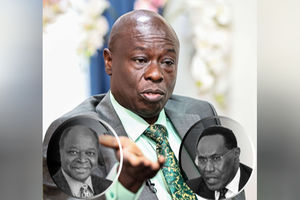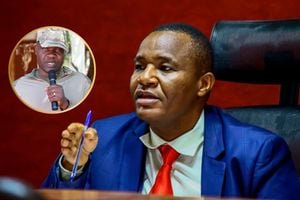
A Rolex watch.
Most of the people reading this column right now are billionaires.
Don’t believe me? That’s because you naturally assumed “billions” are about money. Jade Bonacolta, a writer on personal growth and productivity, has a different way of looking at it. One billion seconds equals 30 or so years. If you have that much time available to you, you’re a time billionaire.
If you’re 20 years old, you have approximately two billion seconds left. At 50, you will probably still have another billion seconds to live through. By age 80, Jade points out, you may be the one wondering where all the time went!
That’s because no one teaches you how to spend the billions of seconds in your time accounts. A platoon of advisors will line up to tell you how to spend the money in your bank account— family, friends, bankers and financial experts all have strong advice for you. So do the purveyors of goods and services.
But do you have a plan for how to spend all the time in your life? Do you know what matters to you, what to prioritise, what to avoid? Or will you let others spend your time for you?
These days we see so many bragging about their packed calendars, their sleepless nights, their long, never-ending to-do lists. Society has truly glorified the hustle. To be busy is to be important, relevant, needed. Or is it? What if real success lies not in how much you can cram into your day, but in how much of your day you get to call your own?
Overwhelming desires
To hustle without limits is to became a slave to our overwhelming desires. The pursuit of more blinds us to what we are losing, in spades: our time. The more we chase, the less we own our own hours. The financial wealth that so mesmerises us may be achieved, but at what cost? What if we end up losing the freedom to decide how we truly live?
Time is our only non-renewable, non-negotiable resource. Once it’s gone, it’s gone. It is so scarce, so precious, that it is amazing we don’t take it more seriously. When people are money-impoverished, it makes sense to devote large stretches of time to making more. As I have repeatedly written here, being poor is not a condition any of us should aspire to. Not having enough money places us in the hands of others, squarely. We are forced to work and borrow on others’ terms. I have been in that situation, and there is nothing pleasant about it.
But what about when we have enough wealth for the regular needs and comforts of our nearest and dearest? Many of you are in that position, but are you also time-rich? Or just aspiring for more material returns, while burning up all your time?
Jade Bonacolta points out: The biggest flex isn’t an expensive watch; it’s the ability to say ‘yes’ (or ‘no’) to anything at a moment’s notice. To be able to choose what to do on a given day? Now that’s luxury. Owning a Rolex, she tells us, is not as cool as owning your time. Owning more ostentation is just about impressing people that you don’t care about, or about excessive self-indulgence.
Being a time billionaire, please note, is not about lazing around doing nothing all day. That too is an egregious misspend of a valuable resource. It is about having the choice, the autonomy, to decide. A time billionaire can choose to work and earn, absolutely; but they can also choose to take a break, pursue a passion, help others, spend time with those who matter, or just rest.
Earn money
When I left employment more than two decades ago, I swore I would never again be time-poor. I needed to keep earning, certainly; but I also needed to find my groove in life. That would not ever happen if there were no days in the month to just...be. So how did that play out? I have certainly done a lot of work in the years that followed, more than I had imagined at the beginning of that new phase in life.
But I did it knowingly and intentionally, both to earn the money to sustain many lives, and to grow in my own purpose and profession. I have ended up in the fortunate position of choosing what work I do. Not because I am super-rich (far from it), but because I am super-conscious of what I won’t do. It is still work in progress, but the boundaries were set back then.
The key point here is about the joy of freedom. To be able to live the life you want is truly a gift and blessing—but in many cases it is a choice we fail to make. We trade hours for money, not realising that the thing we are giving away may be more important than the one we are receiving.
We can all fall victim to the trap of becoming time-poor, but it’s a meaningful question: who runs your time account? Your employers, your shareholders, your customers? Your family members, your friends, your desires? Or just you?
wwww.sunwords.com








